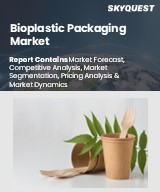
|
시장보고서
상품코드
1726132
사탕수수 포장 시장 규모, 점유율, 동향 분석 보고서 : 재료별, 제품별, 최종 용도별, 지역별, 부문 예측(2025-2030년)Sugarcane-based Packaging Market Size, Share & Trends Analysis Report By Material (Bagasse-based, Sugarcane-based), By Product (Plates & Trays, Food Containers), By End-use, By Region, And Segment Forecasts, 2025 - 2030 |
||||||
사탕수수 포장 시장의 성장과 동향
Grand View Research, Inc.의 최신 보고서에 따르면 세계 사탕수수 포장 시장 규모는 2030년까지 6억 1,276만 달러에 달할 것으로 예측되며, 2025-2030년에 걸쳐 CAGR 9.7%로 성장할 것으로 예측되고 있습니다.
사탕수수 포장 시장은 세계의 서스테인블 포장 산업의 매우 중요한 부문이며, 친환경 조성, 생분해성, 상업적 실행 가능성 증가에 의해 구별됩니다. 설탕 추출 후 남은 섬유질 잔여물인 바가스에서 추출한 사탕수수 포장은 외식, 소매, 전자상거래 등 여러 분야에서 상당한 주목을 받고 있습니다. 그 내구성, 내유성, 퇴비화성에 의해 기존 플라스틱 포장의 대체품으로서 점점 선호되고 있습니다. 또한, 플라스틱 폐기물의 삭감을 목적으로 한 세계의 엄격한 규제나, 친환경 제품에의 소비자의 기호의 변화로 사탕수수를 원료로 하는 포장 솔루션이 널리 채택되고 있습니다.
시장 성장을 뒷받침하는 주요 요인 중 하나는 순환형 경제의 실천과 지속 가능한 공급 체인으로의 세계 이행이 가속되고 있다는 것입니다. 섬유 가공 및 배리어 코팅 기술의 진보에 의해 사탕수수 포장의 성능은 대폭 향상해, 내습성과 구조적 완전성이 강화되고 있습니다.
시장 관계자는 합병, 인수, 제휴 등 다양한 전략적 이니셔티브에 주력하고 있습니다. 만들어진 퇴비화 가능한 식기의 라인을 확대했습니다. 새롭게 추가된 것은 음료용 컵, 화분, 스낵 트레이로, 푸드서비스 산업에서 일회용 플라스틱을 대체하도록 설계되고 있습니다.
사탕수수 포장 시장 보고서 하이라이트
- 재료별로는 바가스 베이스가 최대의 점유율을 차지해, 2024년 시장 규모는 2억 1,020만 달러에 달했습니다.
- 제품별로는 플레이트 & 트레이가 2024년 시장 규모 40.24%로 최대 점유율을 차지했습니다.
- 최종 용도별로는 후드 서비스 부문이 시장을 독점해, 2024년의 수익 점유율은 44.69%였습니다.
- 아시아태평양이 리사이클 시장을 독점했습니다. 아시아태평양은 생분해성 포장의 유력한 제조 거점으로서 대두하고 있어, 이 지역이 사탕수수 포장 기술의 세계 발전을 리드할 것으로 예측됩니다.
- 아시아태평양에서는 중국이 리사이클 및 엔지니어링 플라스틱의 주요 제조업체이며, 2024년에는 이 지역의 매출 시장 점유율의 약 42%를 차지했습니다.
- 시장에서 사업을 전개하는 시장 기업에는 Eco-Products, World Centric, Pappco Greenware, Vegware, BioPak, Ecoriti, Green Good, Natural Tableware, and Bio Futura 등이 있습니다.
목차
제1장 조사 방법과 범위
제2장 주요 요약
제3장 사탕수수 포장 시장의 변수, 동향, 범위
- 세계 사탕수수 포장 시장 전망
- 산업 밸류체인 분석
- 기술 개요
- 순환형 경제의 영향
- 2018-2030년의 평균 가격 동향 분석
- 가격 설정에 영향을 미치는 주요 요인
- 규제 프레임워크
- 시책과 인센티브 플랜
- 표준 및 컴플라이언스
- 규제의 영향 분석
- 시장 역학
- 시장 성장 촉진요인 분석
- 시장 성장 억제요인 분석
- 산업의 과제
- Porter's Five Forces 분석
- 공급자의 힘
- 구매자의 힘
- 대체 위협
- 신규 참가로부터의 위협
- 경쟁 기업간 경쟁 관계
- PESTEL 분석
- 정치
- 경제
- 사회
- 기술
- 환경
- 법적
제4장 사탕수수 포장 시장 : 재료의 전망과 예측
- 사탕수수 포장 시장 : 재료 변동 분석, 2024년, 2030년
- 바가스 베이스
- 사탕수수 베이스
제5장 사탕수수 포장 시장 : 제품 전망 추정 및 예측
- 사탕수수 포장 시장 : 제품 변동 분석, 2024년, 2030년
- 플레이트와 트레이
- 식품 용기
- 그릇과 컵
- 클램쉘 컨테이너
- 기타
제6장 사탕수수 포장 시장 : 최종 용도의 전망의 추정과 예측
- 사탕수수 포장 시장 : 최종 용도 변동 분석, 2024년, 2030년
- 푸드서비스
- 소매
- 전자상거래 포장
- 기타
제7장 사탕수수 포장 시장의 지역 전망 추정 및 예측
- 지역 스냅샷
- 사탕수수 포장 시장 : 지역 변동 분석, 2024년, 2030년
- 북미
- 시장 추정 및 예측, 2018-2030년
- 재료별, 2018-2030년
- 제품별, 2018-2030년
- 최종 용도별, 2018-2030년
- 미국
- 캐나다
- 멕시코
- 유럽
- 시장 추정 및 예측, 2018-2030년
- 재료별, 2018-2030년
- 제품별, 2018-2030년
- 최종 용도별, 2018-2030년
- 영국
- 독일
- 프랑스
- 이탈리아
- 스페인
- 아시아태평양
- 시장 추정 및 예측, 2018-2030년
- 재료별, 2018-2030년
- 최종 용도별, 2018-2030년
- 제품별, 2018-2030년
- 중국
- 인도
- 일본
- 한국
- 호주
- 중남미
- 시장 추정 및 예측, 2018-2030년
- 재료별, 2018-2030년
- 제품별, 2018-2030년
- 최종 용도별, 2018-2030년
- 브라질
- 아르헨티나
- 중동 및 아프리카
- 시장 추정 및 예측, 2018-2030년
- 재료별, 2018-2030년
- 제품별, 2018-2030년
- 최종 용도별, 2018-2030년
- 사우디아라비아
- 남아프리카
- 아랍에미리트(UAE)
제8장 경쟁 구도
- 주요 시장 진출기업에 의한 최근의 동향과 영향 분석
- 벤더 상황
- 기업 분류
- 주요 리셀러와 채널 파트너 목록
- 잠재 고객/최종 사용자 목록
- 경쟁학
- 기업의 시장 점유율 분석과 시장 포지셔닝
- 경쟁 벤치마킹
- 전략 매핑
- 히트맵 분석
- 기업 프로파일/상장 기업
- 참가 기업 개요
Sugarcane-based Packaging Market Growth & Trends:
The global sugarcane-based packaging market size is anticipated to reach USD 612.76 million by 2030 and is anticipated to expand at a CAGR of 9.7% from 2025 to 2030, according to a new report by Grand View Research, Inc. The sugarcane-based packaging market is a pivotal segment of the global sustainable packaging industry, distinguished by its eco-friendly composition, biodegradability, and growing commercial viability. Derived from bagasse, the fibrous residue left after sugar extraction, sugarcane-based packaging is gaining significant traction across multiple sectors, including food service, retail, and e-commerce. Its ability to provide durability, grease resistance, and compostability makes it an increasingly preferred alternative to conventional plastic packaging. In addition, stringent global regulations aimed at reducing plastic waste and shifting consumer preferences toward environmentally responsible products are driving widespread adoption of sugarcane-based packaging solutions.
One of the primary factors fueling the market growth is the accelerating global transition toward circular economy practices and sustainable supply chains. Unlike petroleum-based packaging, sugarcane-derived materials offer a lower carbon footprint and align with corporate sustainability goals, making them a strategic choice for businesses seeking to enhance their environmental credentials. Furthermore, ongoing advancements in fiber processing and barrier-coating technologies have significantly improved the performance characteristics of sugarcane packaging, enhancing its moisture resistance and structural integrity. As major multinational brands integrate eco-friendly materials into their packaging portfolios, the demand for scalable, cost-effective sugarcane-based solutions is expected to surge, reinforcing its role as a cornerstone of the next-generation packaging landscape.
The market players focus on various strategic initiatives such as mergers, acquisitions, and collaborations. For instance, in September 2024, CHUK, a brand focused on eco-friendly products, expanded its compostable tableware line made from sugarcane residue. The new additions included a beverage cup, a small bowl, and a snack tray designed to replace single-use plastics in the food service industry.
Sugarcane-based Packaging Market Report Highlights:
- Based on material, bagasse-based held the largest share, accumulating USD 210.2 million market size in 2024
- Based on product, plates & trays accounted for the largest share of 40.24% market size in 2024
- Based on end use, the foodservice segment dominated the market, with a revenue share of 44.69% in 2024
- Asia Pacific dominated the recycling market. With Asia Pacific emerging as a dominant manufacturing hub for biodegradable packaging, the region is expected to lead global advancements in sugarcane-based packaging technologies
- China was the leading manufacturer of recycling engineering plastics in the Asia Pacific region and captured around 42% of the revenue market share in 2024 in this region
- Market players operating in the recycling engineering plastics market include Eco-Products, World Centric, Pappco Greenware, Vegware, BioPak, Ecoriti, Green Good, Natural Tableware, and Bio Futura
Table of Contents
Chapter 1. Methodology and Scope
- 1.1. Market Segmentation & Scope
- 1.2. Market Definition
- 1.3. Information Procurement
- 1.3.1. Purchased Database
- 1.3.2. GVR's Internal Database
- 1.3.3. Secondary Materials & Third-Party Perspectives
- 1.3.4. Primary Research
- 1.4. Information Analysis
- 1.4.1. Data Analysis Models
- 1.5. Market Formulation & Data Visualization
- 1.6. Data Validation & Publishing
Chapter 2. Executive Summary
- 2.1. Market Insights
- 2.2. Segmental Outlook
- 2.3. Competitive Outlook
Chapter 3. Sugarcane Based Packaging Market Variables, Trends & Scope
- 3.1. Global Sugarcane Based Packaging Market Outlook
- 3.2. Industry Value Chain Analysis
- 3.3. Technology Overview
- 3.4. Impact of Circular Economy
- 3.5. Average Price Trend Analysis, 2018 to 2030 (USD/kg)
- 3.5.1. Key Factors Influencing Pricing
- 3.6. Regulatory Framework
- 3.6.1. Policies and Incentive Plans
- 3.6.2. Standards and Compliances
- 3.6.3. Regulatory Impact Analysis
- 3.7. Market Dynamics
- 3.7.1. Market Driver Analysis
- 3.7.2. Market Restraint Analysis
- 3.7.3. Industry Challenges
- 3.8. Porter's Five Forces Analysis
- 3.8.1. Supplier Power
- 3.8.2. Buyer Power
- 3.8.3. Substitution Threat
- 3.8.4. Threat from New Entrant
- 3.8.5. Competitive Rivalry
- 3.9. PESTEL Analysis
- 3.9.1. Political Landscape
- 3.9.2. Economic Landscape
- 3.9.3. Social Landscape
- 3.9.4. Technological Landscape
- 3.9.5. Environmental Landscape
- 3.9.6. Legal Landscape
Chapter 4. Sugarcane Based Packaging Market: Material Outlook Estimates & Forecasts
- 4.1. Sugarcane Based Packaging Market: Material Movement Analysis, 2024 & 2030
- 4.1.1. Bagasse-based
- 4.1.1.1. Market estimates and forecast, 2018 - 2030 (USD Million)
- 4.1.2. Sugarcane-based
- 4.1.2.1. Market estimates and forecast, 2018 - 2030 (USD Million)
- 4.1.1. Bagasse-based
Chapter 5. Sugarcane Based Packaging Market: Product Outlook Estimates & Forecasts
- 5.1. Sugarcane Based Packaging Market: Product Movement Analysis, 2024 & 2030
- 5.1.1. Plates & Trays
- 5.1.1.1. Market estimates and forecast, 2018 - 2030 (USD Million)
- 5.1.2. Food Containers
- 5.1.2.1. Market estimates and forecast, 2018 - 2030 (USD Million)
- 5.1.3. Bowls & Cups
- 5.1.3.1. Market estimates and forecast, 2018 - 2030 (USD Million)
- 5.1.4. Clamshell Containers
- 5.1.4.1. Market estimates and forecast, 2018 - 2030 (USD Million)
- 5.1.5. Others
- 5.1.5.1. Market estimates and forecast, 2018 - 2030 (USD Million)
- 5.1.1. Plates & Trays
Chapter 6. Sugarcane Based Packaging Market: End Use Outlook Estimates & Forecasts
- 6.1. Sugarcane Based Packaging Market: End Use Movement Analysis, 2024 & 2030
- 6.1.1. Foodservice
- 6.1.1.1. Market estimates and forecast, 2018 - 2030 (USD Million)
- 6.1.2. Retail
- 6.1.2.1. Market estimates and forecast, 2018 - 2030 (USD Million)
- 6.1.3. E-commerce Packaging
- 6.1.3.1. Market estimates and forecast, 2018 - 2030 (USD Million)
- 6.1.4. Others
- 6.1.4.1. Market estimates and forecast, 2018 - 2030 (USD Million)
- 6.1.1. Foodservice
Chapter 7. Sugarcane Based Packaging Market Regional Outlook Estimates & Forecasts
- 7.1. Regional Snapshot
- 7.2. Sugarcane Based Packaging Market: Regional Movement Analysis, 2024 & 2030
- 7.3. North America
- 7.3.1. Market estimates and forecast, 2018 - 2030 (USD Million)
- 7.3.2. Market estimates and forecast, by material, 2018 - 2030 (USD Million)
- 7.3.3. Market estimates and forecast, by product, 2018 - 2030 (USD Million)
- 7.3.4. Market estimates and forecast, by end use, 2018 - 2030 (USD Million)
- 7.3.5. U.S.
- 7.3.5.1. Market estimates and forecast, 2018 - 2030 (USD Million)
- 7.3.5.2. Market estimates and forecast, by material, 2018 - 2030 (USD Million)
- 7.3.5.3. Market estimates and forecast, by product, 2018 - 2030 (USD Million)
- 7.3.5.4. Market estimates and forecast, by end use, 2018 - 2030 (USD Million)
- 7.3.6. Canada
- 7.3.6.1. Market estimates and forecast, 2018 - 2030 (USD Million)
- 7.3.6.2. Market estimates and forecast, by material, 2018 - 2030 (USD Million)
- 7.3.6.3. Market estimates and forecast, by product, 2018 - 2030 (USD Million)
- 7.3.6.4. Market estimates and forecast, by end use, 2018 - 2030 (USD Million)
- 7.3.7. Mexico
- 7.3.7.1. Market estimates and forecast, 2018 - 2030 (USD Million)
- 7.3.7.2. Market estimates and forecast, by material, 2018 - 2030 (USD Million)
- 7.3.7.3. Market estimates and forecast, by product, 2018 - 2030 (USD Million)
- 7.3.7.4. Market estimates and forecast, by end use, 2018 - 2030 (USD Million)
- 7.4. Europe
- 7.4.1. Market estimates and forecast, 2018 - 2030 (USD Million)
- 7.4.2. Market estimates and forecast, by material, 2018 - 2030 (USD Million)
- 7.4.3. Market estimates and forecast, by product, 2018 - 2030 (USD Million)
- 7.4.4. Market estimates and forecast, by end use, 2018 - 2030 (USD Million)
- 7.4.5. UK
- 7.4.5.1. Market estimates and forecast, 2018 - 2030 (USD Million)
- 7.4.5.2. Market estimates and forecast, by material, 2018 - 2030 (USD Million)
- 7.4.5.3. Market estimates and forecast, by product, 2018 - 2030 (USD Million)
- 7.4.5.4. Market estimates and forecast, by end use, 2018 - 2030 (USD Million)
- 7.4.6. Germany
- 7.4.6.1. Market estimates and forecast, 2018 - 2030 (USD Million)
- 7.4.6.2. Market estimates and forecast, by material, 2018 - 2030 (USD Million)
- 7.4.6.3. Market estimates and forecast, by product, 2018 - 2030 (USD Million)
- 7.4.7. France
- 7.4.7.1. Market estimates and forecast, 2018 - 2030 (USD Million)
- 7.4.7.2. Market estimates and forecast, by material, 2018 - 2030 (USD Million)
- 7.4.7.3. Market estimates and forecast, by end use, 2018 - 2030 (USD Million)
- 7.4.7.4. Market estimates and forecast, by product, 2018 - 2030 (USD Million)
- 7.4.8. Italy
- 7.4.8.1. Market estimates and forecast, 2018 - 2030 (USD Million)
- 7.4.8.2. Market estimates and forecast, by material, 2018 - 2030 (USD Million)
- 7.4.8.3. Market estimates and forecast, by end use, 2018 - 2030 (USD Million)
- 7.4.8.4. Market estimates and forecast, by product, 2018 - 2030 (USD Million)
- 7.4.9. Spain
- 7.4.9.1. Market estimates and forecast, 2018 - 2030 (USD Million)
- 7.4.9.2. Market estimates and forecast, by material, 2018 - 2030 (USD Million)
- 7.4.9.3. Market estimates and forecast, by end use, 2018 - 2030 (USD Million)
- 7.4.9.4. Market estimates and forecast, by product, 2018 - 2030 (USD Million)
- 7.5. Asia Pacific
- 7.5.1. Market estimates and forecast, 2018 - 2030 (USD Million)
- 7.5.2. Market estimates and forecast, by material, 2018 - 2030 (USD Million)
- 7.5.3. Market estimates and forecast, by end use, 2018 - 2030 (USD Million)
- 7.5.4. Market estimates and forecast, by product, 2018 - 2030 (USD Million)
- 7.5.5. China
- 7.5.5.1. Market estimates and forecast, 2018 - 2030 (USD Million)
- 7.5.5.2. Market estimates and forecast, by material, 2018 - 2030 (USD Million)
- 7.5.5.3. Market estimates and forecast, by end use, 2018 - 2030 (USD Million)
- 7.5.5.4. Market estimates and forecast, by product, 2018 - 2030 (USD Million)
- 7.5.6. India
- 7.5.6.1. Market estimates and forecast, 2018 - 2030 (USD Million)
- 7.5.6.2. Market estimates and forecast, by material, 2018 - 2030 (USD Million)
- 7.5.6.3. Market estimates and forecast, by product, 2018 - 2030 (USD Million)
- 7.5.6.4. Market estimates and forecast, by end use, 2018 - 2030 (USD Million)
- 7.5.7. Japan
- 7.5.7.1. Market estimates and forecast, 2018 - 2030 (USD Million)
- 7.5.7.2. Market estimates and forecast, by material, 2018 - 2030 (USD Million)
- 7.5.7.3. Market estimates and forecast, by product, 2018 - 2030 (USD Million)
- 7.5.7.4. Market estimates and forecast, by end use, 2018 - 2030 (USD Million)
- 7.5.8. South Korea
- 7.5.8.1. Market estimates and forecast, 2018 - 2030 (USD Million)
- 7.5.8.2. Market estimates and forecast, by material, 2018 - 2030 (USD Million)
- 7.5.8.3. Market estimates and forecast, by product, 2018 - 2030 (USD Million)
- 7.5.8.4. Market estimates and forecast, by end use, 2018 - 2030 (USD Million)
- 7.5.9. Australia
- 7.5.9.1. Market estimates and forecast, 2018 - 2030 (USD Million)
- 7.5.9.2. Market estimates and forecast, by material, 2018 - 2030 (USD Million)
- 7.5.9.3. Market estimates and forecast, by product, 2018 - 2030 (USD Million)
- 7.5.9.4. Market estimates and forecast, by end use, 2018 - 2030 (USD Million)
- 7.6. Central & South America
- 7.6.1. Market estimates and forecast, 2018 - 2030 (USD Million)
- 7.6.2. Market estimates and forecast, by material, 2018 - 2030 (USD Million)
- 7.6.3. Market estimates and forecast, by product, 2018 - 2030 (USD Million)
- 7.6.4. Market estimates and forecast, by end use, 2018 - 2030 (USD Million)
- 7.6.5. Brazil
- 7.6.5.1. Market estimates and forecast, 2018 - 2030 (USD Million)
- 7.6.5.2. Market estimates and forecast, by material, 2018 - 2030 (USD Million)
- 7.6.5.3. Market estimates and forecast, by product, 2018 - 2030 (USD Million)
- 7.6.5.4. Market estimates and forecast, by end use, 2018 - 2030 (USD Million)
- 7.6.6. Argentina
- 7.6.6.1. Market estimates and forecast, 2018 - 2030 (USD Million)
- 7.6.6.2. Market estimates and forecast, by material, 2018 - 2030 (USD Million)
- 7.6.6.3. Market estimates and forecast, by product, 2018 - 2030 (USD Million)
- 7.6.6.4. Market estimates and forecast, by end use, 2018 - 2030 (USD Million)
- 7.7. Middle East & Africa
- 7.7.1. Market estimates and forecast, 2018 - 2030 (USD Million)
- 7.7.2. Market estimates and forecast, by material, 2018 - 2030 (USD Million)
- 7.7.3. Market estimates and forecast, by product, 2018 - 2030 (USD Million)
- 7.7.4. Market estimates and forecast, by end use, 2018 - 2030 (USD Million)
- 7.7.5. Saudi Arabia
- 7.7.5.1. Market estimates and forecast, 2018 - 2030 (USD Million)
- 7.7.5.2. Market estimates and forecast, by material, 2018 - 2030 (USD Million)
- 7.7.5.3. Market estimates and forecast, by product, 2018 - 2030 (USD Million)
- 7.7.5.4. Market estimates and forecast, by end use, 2018 - 2030 (USD Million)
- 7.7.6. South Africa
- 7.7.6.1. Market estimates and forecast, 2018 - 2030 (USD Million)
- 7.7.6.2. Market estimates and forecast, by material, 2018 - 2030 (USD Million)
- 7.7.6.3. Market estimates and forecast, by product, 2018 - 2030 (USD Million)
- 7.7.6.4. Market estimates and forecast, by end use, 2018 - 2030 (USD Million)
- 7.7.7. UAE
- 7.7.7.1. Market estimates and forecast, 2018 - 2030 (USD Million)
- 7.7.7.2. Market estimates and forecast, by material, 2018 - 2030 (USD Million)
- 7.7.7.3. Market estimates and forecast, by product, 2018 - 2030 (USD Million)
- 7.7.7.4. Market estimates and forecast, by end use, 2018 - 2030 (USD Million)
Chapter 8. Competitive Landscape
- 8.1. Recent Developments & Impact Analysis, By Key Market Participants
- 8.2. Vendor Landscape
- 8.2.1. Company categorization
- 8.2.2. List of Key Distributors and channel Partners
- 8.2.3. List of Potential Customers/End-users
- 8.3. Competitive Dynamics
- 8.3.1. Company Market Share Analysis & Market Positioning
- 8.3.2. Competitive Benchmarking
- 8.3.3. Strategy Mapping
- 8.3.4. Heat Map Analysis
- 8.4. Company Profiles/Listing
- 8.4.1. Participant's overview
- 8.4.2. Financial performance
- 8.4.3. Product benchmarking
- 8.4.3.1. Eco-Products
- 8.4.3.2. World Centric
- 8.4.3.3. Pappco Greenware
- 8.4.3.4. Vegware
- 8.4.3.5. BioPak
- 8.4.3.6. Ecoriti
- 8.4.3.7. Green Good
- 8.4.3.8. Natural Tableware
- 8.4.3.9. Bio Futura
(주말 및 공휴일 제외)


















